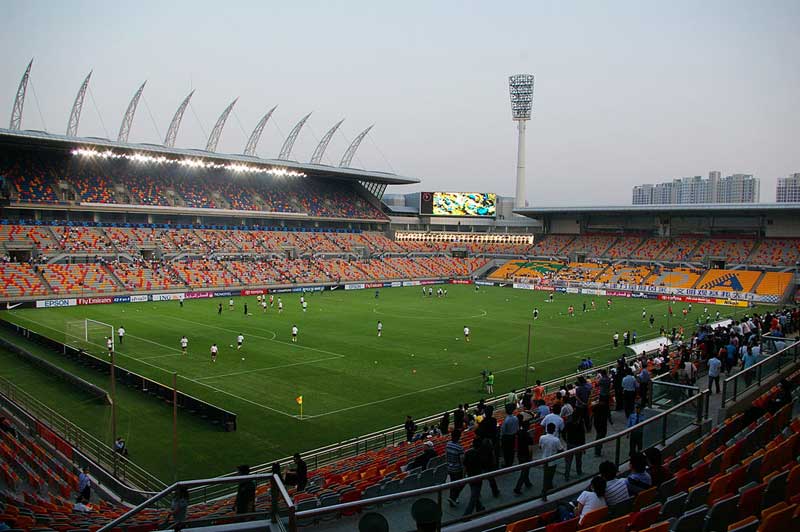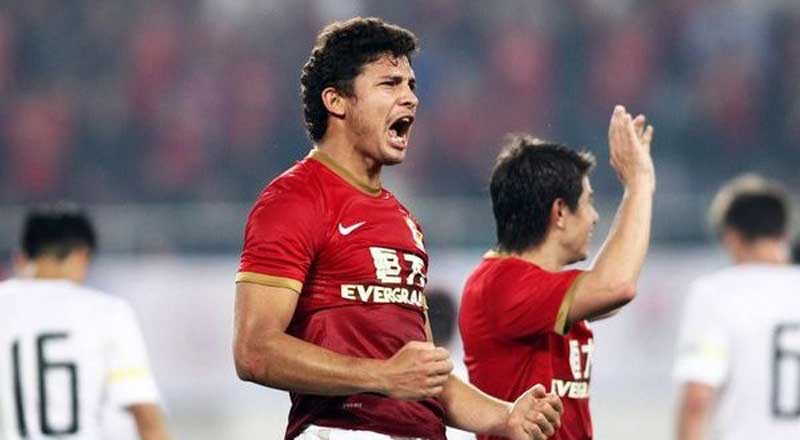By Dave Caren in Brazil
I arrived in Brazil in 2010 to an economy that was booming.
The Brazilian Real, the local currency, was the strongest it had been in its relatively short history against the Dollar, and China were Brazil’s biggest customer for raw materials such as iron ore. Two of the newly dubbed BRIC (emerging) nations doing business together for their mutual benefit.
Roll the clock forward six short years and we find Brazil is in economic collapse, her currency falling like a stone to new record lows, her economy has passed recession and entered a financial depression.
Boom and Bust, The Brazilian way, or Jeito Brasilerio, as it’s known locally.
Brazil however, is still the favoured marketplace for the Chinese, but these days the demand for raw materials have dried up, as the worlds second largest economy has suffered a little recession of it’s own.
Instead the Chinese have turned their attentions to a human commodity – footballers – and a very high percentage of those they buy are Brazilian.
But at what cost to Brazil’s domestic and national game?
China is now trying to financially force it’s way onto the football landscape with the advent of the Chinese Super League.
China is a country that would like to see itself as a success at everything it does, and it currently has it’s eyes firmly fixed on a seat at the top table of football.
Mighty ambitions from a country with one unremarkable World Cup appearance in its history. Mighty ambitions from a country whose sporting icons are more likely to be NBA basketball stars than the Barcelona front three. But they have one thing in their favour, and its something that a high percentage of today’s professional footballers care more about that winning matches, of course, it’s money!
In the past 24 months we have seen the rise of the Chinese Dragon on the map of world football, as China has been quietly laying down its marker in the football arena.

Tianjin TEDA Soccer Stadium. Their owners are the Tianjin TEDA Group, a state-owned conglomerate of the People’s Republic of China. (Image by Craighong – Own work, CC BY-SA 3.0, )
Initially it went virtually unnoticed with heavy investments by Chinese companies in European clubs such as Manchester City, Atletico Madrid, and a controlling stake in Slavia Prague – all to the delight of Chinese President Xi Jinping, who has openly spoke of his deep love of the Beautiful Game.
Over the past few transfer windows we have seen the steady increase in players leaving, at first Brazil, and now from some of the powerhouses of Europe, to ply their trade in China.
The fees paid are top dollar, and the wages rival anything the bigger leagues of Europe can offer.
Billionaire owners and investors are throwing money like confetti to raise the profile of football in China and now are starting to landing some big name players in the process.
Brazil on the other hand has a league filled with clubs laden with debt, riddled with corruption, and a league where players are seldom paid on time, and in some cases never.
Chinese businessmen on the other hand, can lay big paying contracts in front of these players, and they actually honour them!
It’s easy to see the appeal to Brazilian players. In any walk of life getting your salary on time is a major part of your existence, footballers are no different.
With this in mind it’s easy to see why the Chinese have cleverly targeted Brazil as their primary source for players in their football venture.
The lure of China as a footballing destination may never appeal in the same way as England, Portugal, or Spain; but money has an international appeal, and it alone has enticed many Brazilian players to China and I can’t see that trend stopping any time soon.

Brazilian forward Elkeson scored 76 goals in 111 games for Guangzhou Evergrande, before moving within the Chinese Super League to Shanghai SIPG in January 2016.
This is a very real and very dangerous situation that Brazilian Football finds itself in.
A country who can still, at least for the moment, pride itself as the most successful country in World Cup history, but in reality how long will it be before Brazil’s World Cup glories are eclipsed?
Those days of glory sadly belong in the past, indeed it’s hard to imagine Brazil being a major player again at any international tournament any time soon, and with this Chinese exodus it’s difficult to imagine any good will be coming to the Brazilian national team as a result.
Europe has always taken it’s pick of the best young talents Brazil has had to offer in recent history, but Europe would never be a stumbling block for the players ambitions.
Can we say the same for those who have decided to play in China? I think not.
If the trend continues for the next ten years, where will this leave Brazilian football?
Admittedly China are buying a lot of players who may aspire to play for the national side, but in reality would not be of the standard to do so.
But in the January 2016 window all that has started to change. We saw the likes Ramires and Gil, both capped by Brazil, make the move to China. Chinese clubs are paying massively above market prices for players and Europe can only watch as their hands are tied with regulations such as FFP, while clubs like Shakhtar hold out to cash in, as the Chinese will pay inflated prices.
Alex Teixeria’s move from Shakhtar to Jiangsu for a whopping £38.4m is the prime example in all of this.
After a failed bid by Liverpool, a club he informed us was his dream move, he appears to have lacked the patience and ambition to wait for a move to a European power in the summer and opted for the lure of money in China.
This is a player who has openly spoken about his aspirations to play for his country, so what does this move tell us about the status of International Football in the modern game?
Even beyond the national team, there will be no Champions League for him, no Copa Liberatadores, but there will be money!
Mark Lawrenson wrote recently that in making this move Teixeria showed the ambition of a gnat, and I tend to agree with this assessment.
As a professional athlete is part of your career goals not to compete and go head to head with the best? To test yourself in the ultimate arenas of sport? To be the best that you can be? To win the highest honours? All that seems to have no value when placed against the wages on offer in China.
Staying with Teixeira I would also beg the question of who will be watching him? Will national team coach Dunga be keeping an eye on him? It’s doubtful to say the least.
The world already has football streaming to their TVs and computers 24 hours a day. Will China really have the high end entertaining product to break into that global market? Will anyone even be interested in these players once they move to China? Can China really buy itself a stake in the world football market?
There is also the question of long term sustainability for this league.
If one of Europe’s elite decided to make a move for a Teixiera in the near future and only wanted to pay his market value and wage value would the Chinese be prepared to take that loss? Would the player want to take the wage drop? Or will it become the norm to see players like Ezequiel Lavezzi & Jackson Martinez trapped in the Chinese Super League, prisoners of their own greed and lack of ambition?
It’s a real possibility now with bigger named players entering the unknown of China where the grass may just not be greener for them once the novelty of their big wage packet wears off.
One Brazilian who did resist the Chinese money to try and resurrect his playing career was Alexandre Pato.
Pato turned down several offers from Chinese clubs and waited his time ending up with a loan move to Chelsea in January. Pato may well have seen the best of his playing days behind him, but one has to admire his grit in trying to compete at the highest level at the expense of his wealth. He will earn less than 25% of what he was offered from China, but he still has hunger and ambition to test himself at the highest level, a trait that a lot of his fellow countrymen seem to have abandoned these days. He has my respect for that and I wish him well as he may be the last chance to buck the trend with his example.
I do wonder how long it will be before the Chinese clubs come for Gabriel “Gabigol” Barbosa – one of the brightest young talents in South America right now.

China calling? Will Gabigol be the next Brazilian talent to move to the Chinese Super League?
At 19 years old, and dubbed the “next Neymar”. The kid from Santos could have the world at his feet in the future, but first I would imagine he will have to resist the lure of the big money from China. I really hope his ambitions match his obvious talents!
Over 40 Brazilian players have now moved to China in a very short time frame. It’s a worrying trend for clubs and country.
The solutions for Brazil are obvious, but the ability to make the changes and clean up the act, starting with the CBF, would take years even if the appetite existed for such change.
Sadly, Brazil does not have time. This problem is very real and it’s happening right now. The proud football history of this nation will become just that – history – with no more recent chapters of glory.
No real football fan would relish the thought of that to happening to Brazil!


COMMENTS